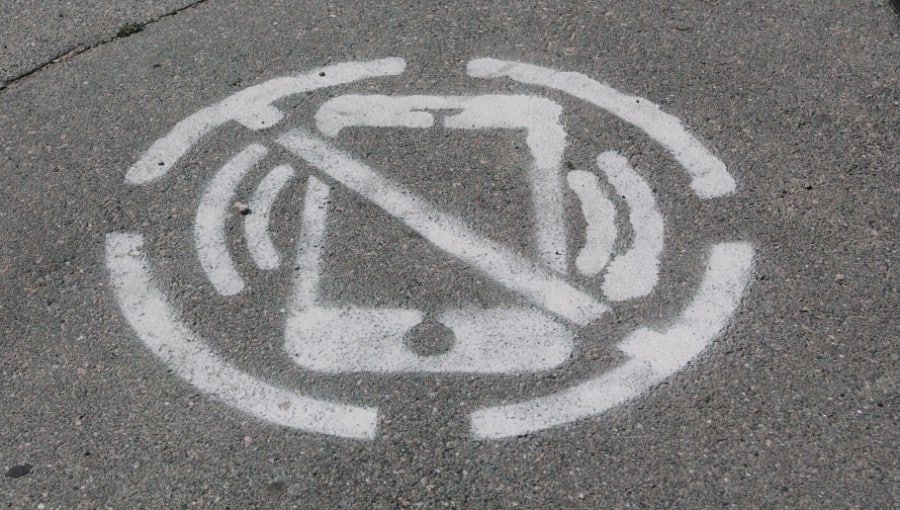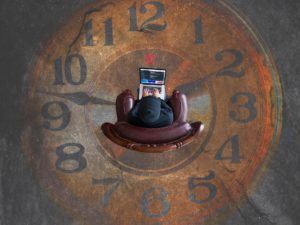Digital Distractions: How the Internet Interferes With Productivity
Ginger Abbot
Nov 1, 2019
We are a reader-supported education publication. When you buy through links on our site, we may earn an affiliate commission to help us keep providing content.
The definition of the modern world is digital. It’s impossible to get through the day without using the internet — especially for those whose careers or studies depend on it. You check emails, research, and respond to colleagues, peers or professors. Yet these conveniences are considered digital distractions.
As much as total digital disconnect sounds like a dream, it’s unrealistic to live your professional or academic life without the web. Instead, you can learn how to live with it, while also remaining productive.
Why Does the Internet Kill Productivity?
The internet is an incredible invention. You have a constant source of knowledge at your fingertips, and finding the solution to a problem takes seconds rather than hours. You can even collaborate with experts and peers from across the world.
When it comes to productivity, however, this constant connection provides a few downsides:
It’s Easy to Access
Many of today’s workers spend more than 40 hours per week in the office. As a result, they try to work on personal tasks at work. According to one study, 90% of professionals go online for individual needs during work hours — and with less disciplined surroundings, students are even more tempted to stray during study time.
With the rise of smartphones, the internet is a click away. From online shopping to social media, the online world provides an endless opportunity for distraction. The most-researched topics at work include restaurants, medical care and automotive services.
It Offers Instant Gratification

The instant gratification you can get from clicking through web pages stimulates the limbic system and prompts the brain to release dopamine, a feel-good neurotransmitter. This bombardment of stimulation can hijack your attention and leave you seeking the next click.
The more time you spend on your phone or tablet, the harder it becomes to disconnect. Users crave that next like or share. When they don’t get it, the brain responds by feeling anxiety and depression.
It Encourages Multitasking
When you’re interconnected, it’s easy to get caught up in many tasks at once. While you might think multitasking is a strength, experts say people who work on one job at a time pay better attention and retain more information than those bombarded with several streams of data.
High-tech multitaskers juggle emails and instant message conversations, all while jumping between websites and watching television. Yet, research claims people who multitask with media pay a significant mental price. Everything distracts them — including irrelevant information — and they become unable to concentrate.
It Induces Mental Fear
The constant stream of digital media produces information overload and mental fatigue. Fear of missing out (FOMO) keeps you always hunched over your phone, waiting for the next update, notification or post. As a result, you miss out on what’s actually happening around you in the physical present.
Studies show people who experience FOMO face fatigue, stress and decreased sleep. College students are more likely to experience this fear while studying or working — especially later in the day or week.
It Creates More Stress
Those who are always reachable through electronic devices are more stressed than those who disconnect. When you half-pay attention to something, like your smartphone, you can’t fully concentrate on anything.
An always-on attitude will cultivate a false sense of crisis. Because you’re stressed and distracted, you’re unable to focus and reach your full potential.
Distractions can have long-term consequences. You lose the drive and self-discipline to get tasks done. If you want to boost your productivity, it’s time to kick distractions to the curb.

Ready to Eliminate Distractions? Learn How to Unplug and Excel
Improved productivity doesn’t mean tossing your phone out the window. Instead, it means creating boundaries in your work and personal life.
Are you ready to cut digital distractions out of your life? Follow the five tips below:
- Put your phone away: During school, study time or the workday, stash your phone in a spot you can’t see. Try hiding it in the car, your desk or a bag — and put it on silent.
- Set productivity hours: Set aside of chunk of time to disconnect and hit peak productivity. For example, work on focusing your attention on one task from 1 p.m. to 3 p.m. right after lunch. Turn off notifications and stay in one tab.
- Create personal deadlines: While some schedules are flexible, you can still set deadlines. Estimate how long it will take to finish a task. Then, set a timer to count down.
- Turn off notifications: Notifications from your smartphone, email, instant message and social media are major distractions. Put everything on silent during the day to keep your mind clear — or better yet, permanently disable notifications from non-essential apps.
- Find a new space: You can’t always avoid digital distractions at work or school. With peers, personal messaging and more, it’s hard to stay focused. Find a quiet spot on campus or ask your boss about remote work opportunities, which allow you to grow in a productive environment.

The internet and all its compatible device aren’t inherently negative. We can use them to connect, collaborate and discover innovative solutions. But digital options also induce many distractions. When we allow them to consume us, our productivity plummets.
Don’t let the web throw off your work. Instead, learn to use it to your advantage. From silencing notifications to setting deadlines, disciplining your browsing habits will help you remove distractions — and hit peak productivity.









